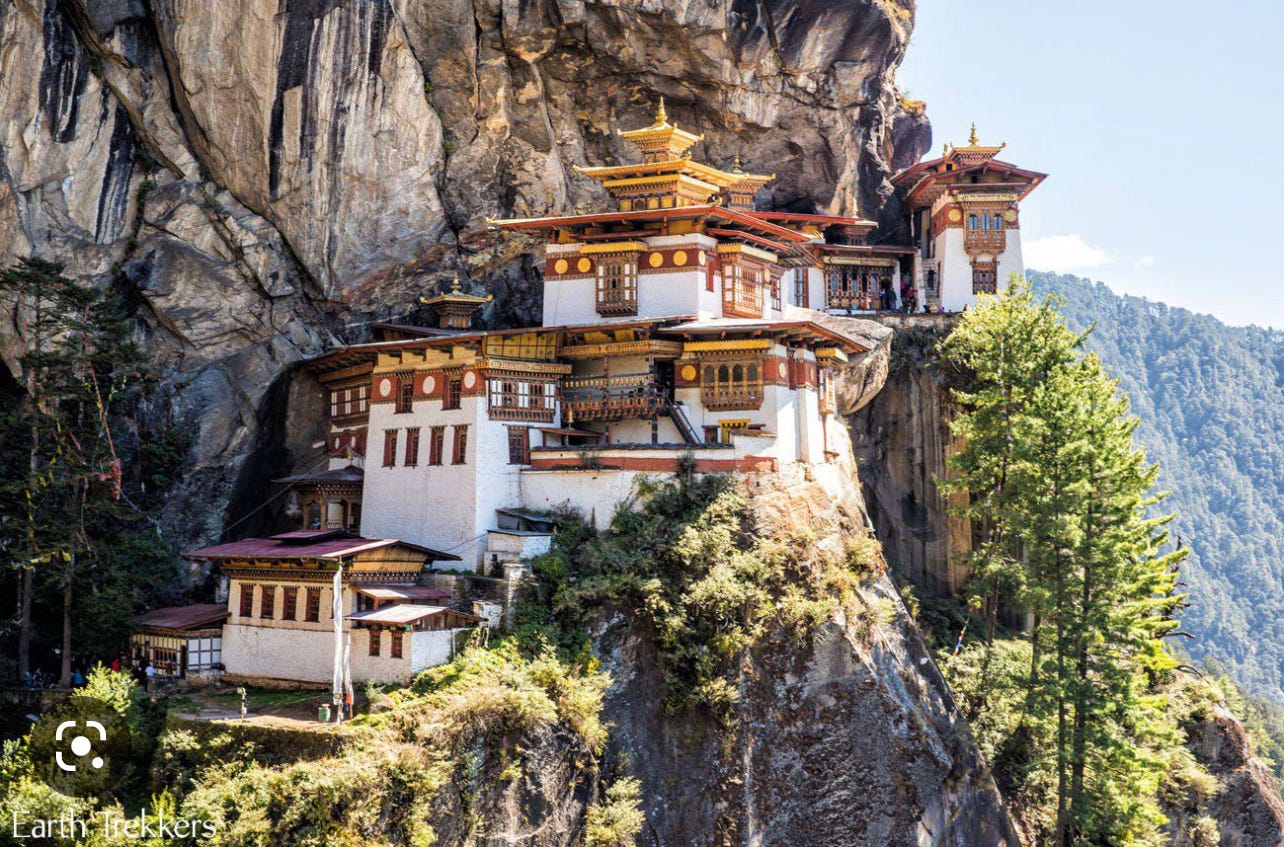Historically, Bhutan has never been much of an attraction for outsiders. For one, it was never colonized by a European power. Two, both the Allies and Axis powers ignored the country in World War II. And today, a $200-per-day visa is enough to keep mass tourism at bay.
Yet Bhutan is admired around the world for developing a Gross National Happiness (GNH) Index and for being the happiest country in earth. After spending four days in the country, I can see why.
People we met were not only gracious, but grateful for our presence. You are not hounded or regarded as a walking ATM machine. The chill factor, to a New Yorker used to living on high alert, is almost unreal.
Some of this undoubtably stems from Bhutan’s Buddhist heritage. A major tenet of which, as a Buddhist monk told us, is to do no harm and put others first.
You see this philosophy in action everywhere. Along with a daily manifestation of Bhutanese’s faith. Our guide, Kesang, a man in his early 40s, was often silently praying or chanting when he was not telling us about another wonderful facet of his country.
Speaking of wonderful, Bhutan is 90 percent mountainous which will make outdoor adventurers very happy. The hiking is breathtaking—as in, it can literally take your breath away. A 2.6-kilometer arduous climb to Tiger’s Nest, the monastery where Bhutanese Buddhism began, will wind the most experienced amateur athlete. But not the locals. As you huff and puff up the trail to an elevation of 10,000 feet, you’ll be surrounded by families who climb this path every few months. Sometimes every week.
But one does not live on happiness alone. Nor Bhutan doesn’t try to. 70 percent of their GNP comes from exporting electricity to India. The rest of the economy is agriculturally based, followed by tourism.
Tellingly, a professor from a local university speaking about the GNH, said it’s not all about how fast and rich Bhutan can become. “Happiness,” he said, “is realizing that enough is enough.” A statement that is sure to raise an eyebrow—if not the ire—of a billionaire hedgie.
So who’s not going to be completely happy in Bhutan? Those who prefer beach-y resorts, Michelin-stared restaurants, and getting everywhere with Uber. Despite these “shortcomings,” the Bhutanese people remain the happiest on the planet. They welcome the chance to show you why.



